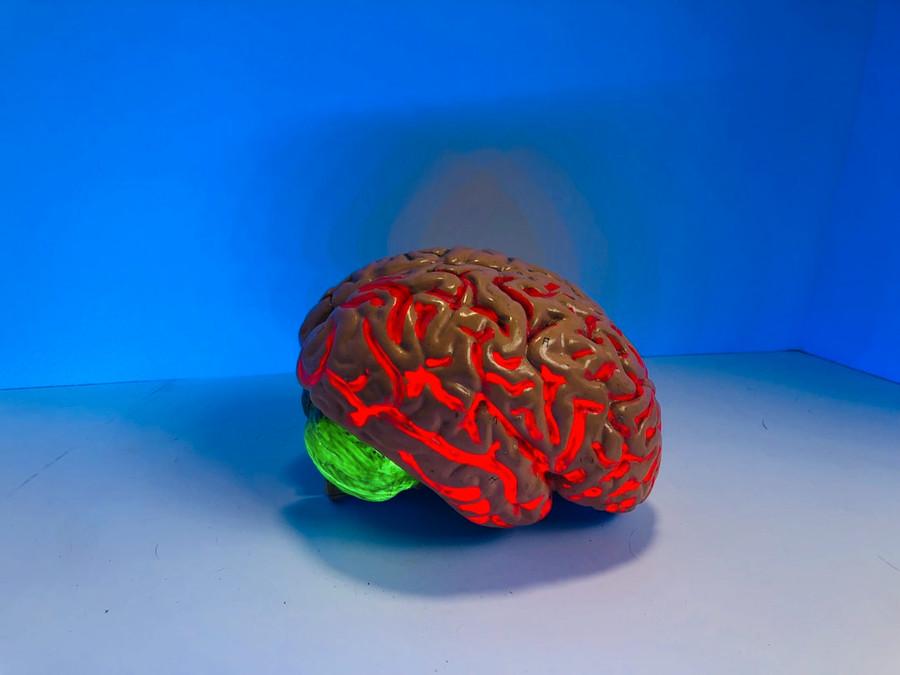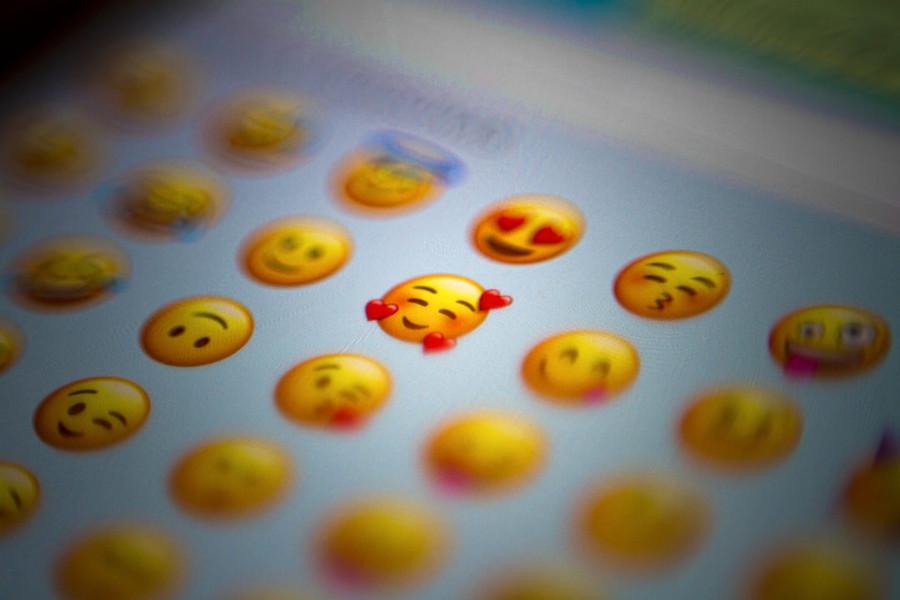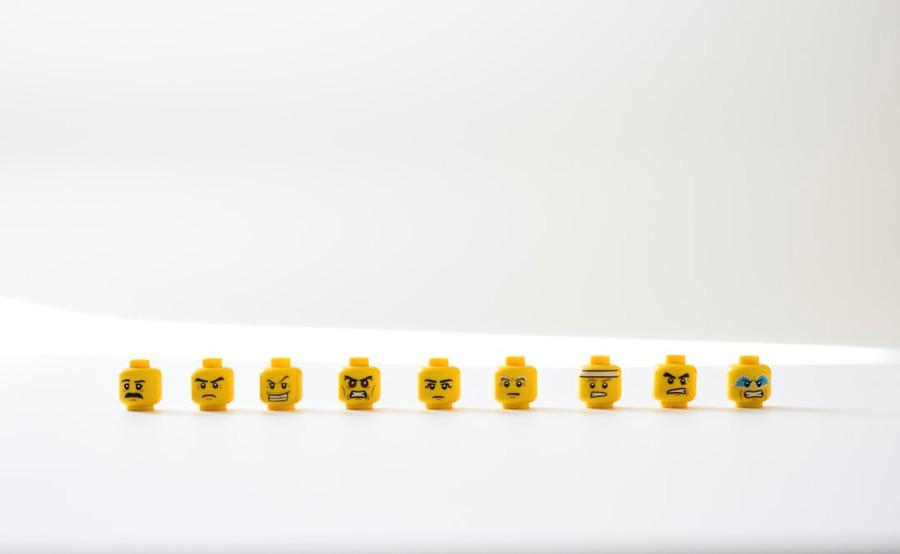Love, Actually | The science behind lust, attraction, & companionship
Curated from: sitn.hms.harvard.edu
Ideas, facts & insights covering these topics:
16 ideas
·11.7K reads
62
4
Explore the World's Best Ideas
Join today and uncover 100+ curated journeys from 50+ topics. Unlock access to our mobile app with extensive features.
The Science Behind Love
What is love?
Scientists in fields ranging from anthropology to neuroscience have been asking this question for decades.
The scientific basis of love is often sensationalized, and as with most science, we don’t know enough to draw firm conclusions about every piece of the puzzle.
What we do know, however, is that much of love can be explained by chemistry.
84
1.3K reads
Total Eclipse Of The Brain
Think of the last time you ran into someone you find attractive. You may have stammered, you may have said something incredibly silly or foolish and tripped spectacularly. And chances are, your heart was thudding in your chest.
It’s no surprise that, for centuries, people thought love (and most other emotions, for that matter) arose from the heart. As it turns out, love is all about the brain – which, in turn, makes the rest of your body go haywire.
85
1.06K reads
Breaking Down Love
According to a team of scientists led by Dr. Helen Fisher, romantic love can be broken down into three categories:
- lust - driven by testosterone and estrogen
- attraction - created by dopamine, norepinephrine and serotonin
- attachment - mediated by oxytocin and vasopressin
Though there are overlaps and subtleties to each, each type is characterized by its own set of hormones stemming from the brain.
102
1.14K reads
Let's Get Chemical
Lust is driven by the desire for sexual gratification. The evolutionary basis for this stems from our need to reproduce.
The hypothalamus of the brain plays a big role in stimulating the production of the sex hormones testosterone and estrogen. While these chemicals are often stereotyped as being male and female, respectively, both play a role in men and women.
Testosterone increases libido in everyone. The effects are less pronounced with estrogen, but some women report being more sexually motivated around the time they ovulate, when estrogen levels are highest.
80
863 reads
Chemical Breakdown
The testes and ovaries secrete the sex hormones testosterone and estrogen, driving sexual desire.
Dopamine, oxytocin, and vasopressin are all made in the hypothalamus, a region of the brain that controls many vital functions as well as emotion.
Lust and attraction shut off the prefrontal cortex of the brain, which includes rational behavior.
84
912 reads
Love Is Its Own Reward
While we can certainly lust for someone we are attracted to, one can happen without the other. Attraction involves the brain pathways that control reward behavior which explains why the first few weeks or months of a relationship can be so exhilarating and even all-consuming.
Dopamine, produced by the hypothalamus, is a particularly well-publicized player in the brain’s reward pathway – it’s released when we do things that feel good to us. In this case, these things include spending time with loved ones and having sex. High levels of dopamine and norepinephrine, are released during attraction.
82
751 reads
These chemicals make us giddy, energetic, and euphoric, even leading to decreased appetite and insomnia. In fact, norepinephrine, also known as noradrenalin, which play a large role in the fight or flight response, kicks into high gear when we’re stressed and keeps us alert.
Brain scans of people in love have actually shown that the primary reward centers of the brain, fire like crazy when people are shown a photo of someone they are intensely attracted to, compared to when they are shown someone they feel neutral towards.
75
661 reads
The Friend Zone
Last but not least, attachment is the predominant factor in long-term relationships.
While lust and attraction are pretty much exclusive to romantic entanglements, attachment mediates friendships, parent-infant bonding, social cordiality, and many other intimacies as well. The two primary hormones here appear to be oxytocin and vasopressin.
77
775 reads
Oxytocin is often nicknamed “cuddle hormone” for this reason. Like dopamine, oxytocin is produced by the hypothalamus and released in large quantities during sex, breastfeeding, and childbirth.
The common factor here is that all of these events are precursors to bonding. It also makes it pretty clear why having separate areas for attachment, lust, and attraction is important: we are attached to our immediate family, but those other emotions have no business there.
78
658 reads
Love Hurts
This all paints quite the rosy picture of love: hormones are released, making us feel good, rewarded, and close to our romantic partners. Love is often accompanied by jealousy, erratic behavior, and irrationality, along with a host of other less-than-positive emotions and moods. It seems that our friendly cohort of hormones is also responsible for the downsides of love.
Dopamine is the hormone responsible for the vast majority of the brain’s reward pathway – and that means controlling both the good and the bad. We experience surges of dopamine for our virtues and our vices.
76
559 reads
Attraction Addiction
The dopamine pathway is particularly well studied when it comes to addiction. The same regions that light up when we’re feeling attraction light up when drug addicts take cocaine and when we binge eat sweets.
Cocaine maintains dopamine signaling for much longer than usual, leading to a temporary high. Attraction is much like an addiction to another human being.
The same brain regions light up when addicted to material goods as when emotionally dependent on our partners. Addicts going into withdrawal are not unlike love-struck people craving the company of someone they can't see.
80
546 reads
The Dope In Dopamine
Dopamine, which runs the reward pathways in our brain, is great in moderate doses, helping us enjoy food, exciting events, and relationships.
However, we can push the dopamine pathway too far when we become addicted to food or drugs.
Similarly, too much dopamine in a relationship can underlie unhealthy emotional dependence on our partners.
While healthy levels of oxytocin help us bond and feel warm and fuzzy towards our companions, elevated oxytocin can also fuel prejudice.
77
505 reads
Feel Good Drug
The story is somewhat similar for oxytocin: too much of a good thing can be bad. Recent studies on party drugs such as MDMA and GHB shows that oxytocin may be the hormone behind the feel-good, sociable effects these chemicals produce.
These positive feelings are taken to an extreme in this case, causing the user to dissociate from his or her environment and act wildly and recklessly. Furthermore, oxytocin’s role as a “bonding” hormone appears to help reinforce the positive feelings we already feel towards the people we love.
76
461 reads
The Double Edged Sword
That is, as we become more attached to our families, friends, and significant others, oxytocin is working in the background, reminding us why we like these people and increasing our affection for them.
While this may be a good things for monogamy, such associations are not always positive. For example, oxytocin has also been suggested to play a role in ethnocentrism, increasing our love for people in our already-established cultural groups and making those unlike us seem more foreign.
76
477 reads
Losing Your Self?
And finally, what would love be without embarrassment? Sexual arousal (but not necessarily attachment) appears to turn off regions in our brain that regulate critical thinking, self-awareness, and rational behavior, including parts of the prefrontal cortex.
in short, love makes us dumb. Have you ever done something when you were in love that you later regretted?
81
560 reads
Formula For Love?
As we’ve realized by now, it’s not just the hormone side of the equation that’s complicated. Love can be both the best and worst thing for you – it can be the thing that gets us up in the morning, or what makes us never want to wake up again. I’m not sure I could define “love” for you if I kept you here for another ten thousand pages.
In the end, everyone is capable of defining love for themselves. And, for better or for worse, if it’s all hormones, maybe each of us can have “chemistry” with just about anyone. But whether or not it goes further is still up to ourselves.
79
513 reads
IDEAS CURATED BY
CURATOR'S NOTE
Does love have a formula?
“
Adila Bibi's ideas are part of this journey:
Learn more about scienceandnature with this collection
Practicing empathy in relationships and communication
Understanding the importance of balance in personal and professional life
Defining your path in life
Related collections
Similar ideas
26 ideas
21 Fascinating Psychological Facts about Relationships (2022) Most People Don't Know
newinterestingfacts.com
3 ideas
The Science of Staying in Love - Mindful
mindful.org
56 ideas
55 Fascinating Psychology Facts about Love (2022) Most People Don't Know I Interesting Facts
newinterestingfacts.com
Read & Learn
20x Faster
without
deepstash
with
deepstash
with
deepstash
Personalized microlearning
—
100+ Learning Journeys
—
Access to 200,000+ ideas
—
Access to the mobile app
—
Unlimited idea saving
—
—
Unlimited history
—
—
Unlimited listening to ideas
—
—
Downloading & offline access
—
—
Supercharge your mind with one idea per day
Enter your email and spend 1 minute every day to learn something new.
I agree to receive email updates















